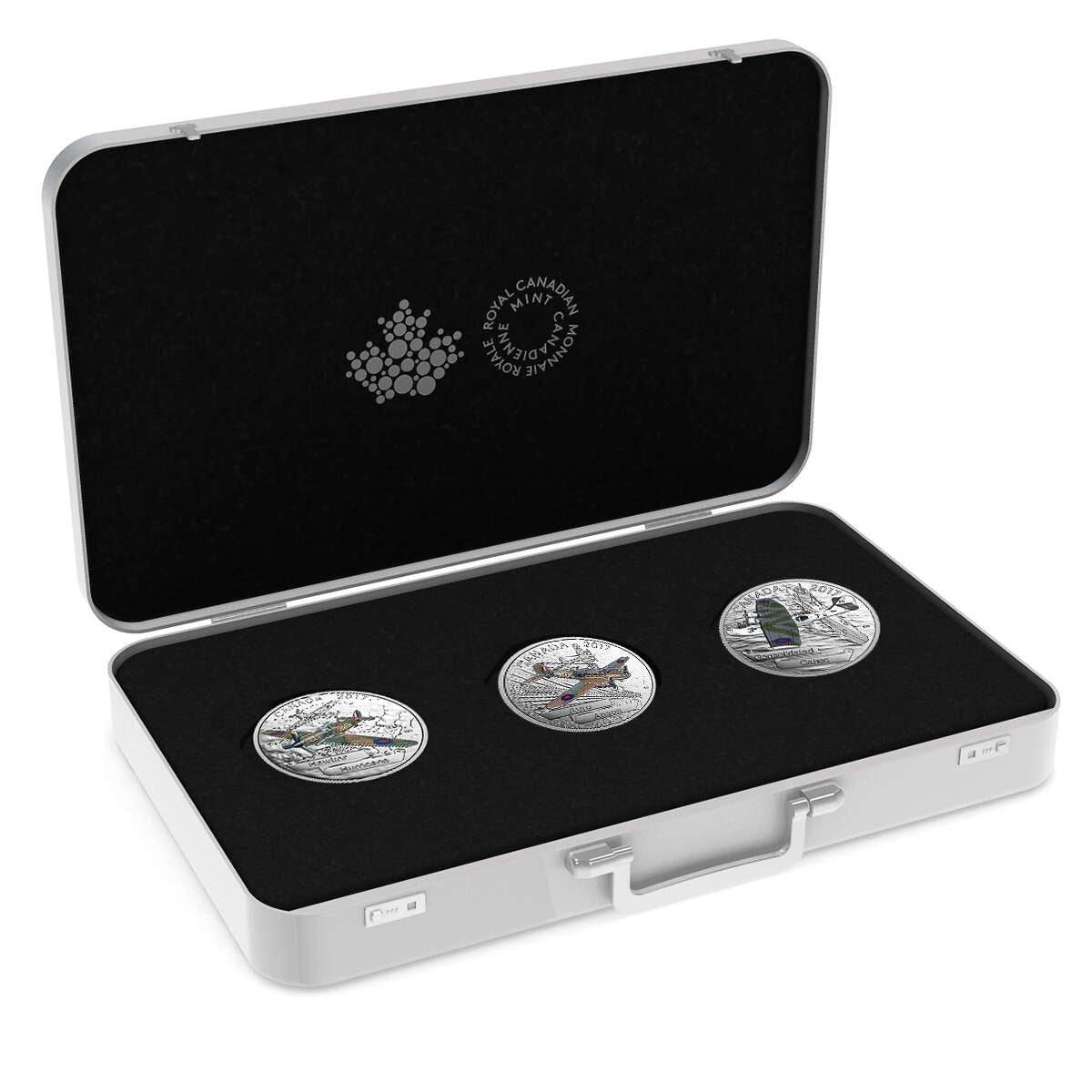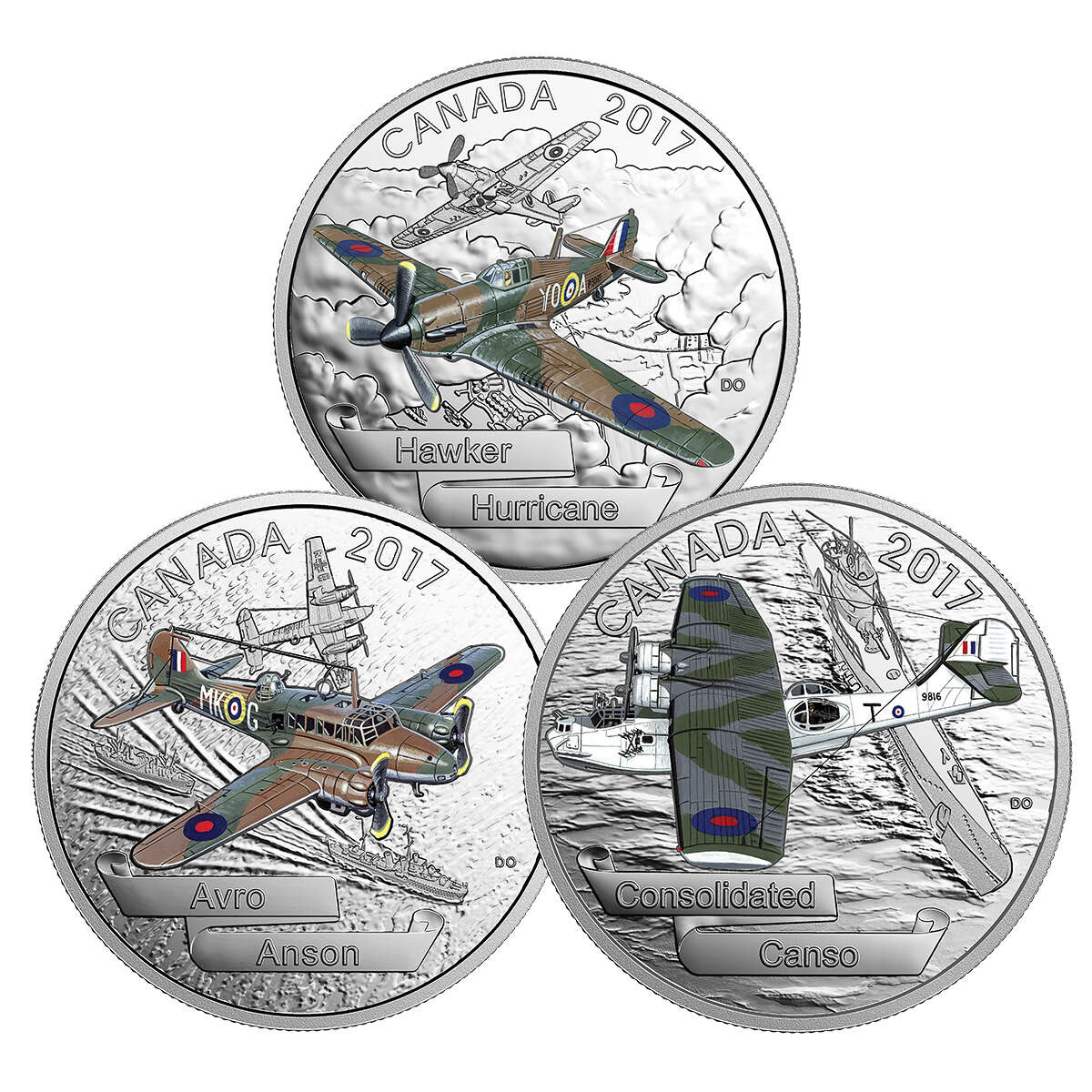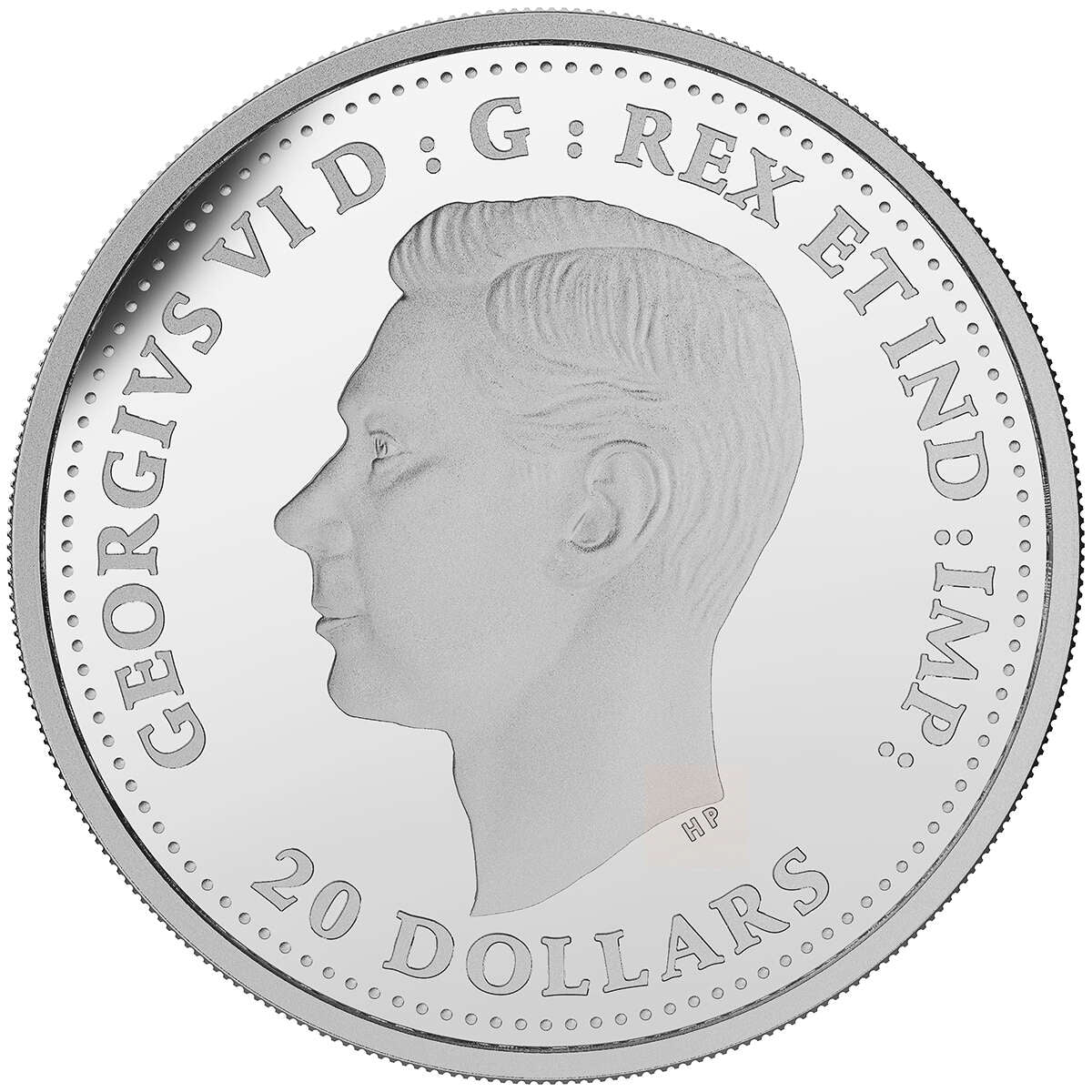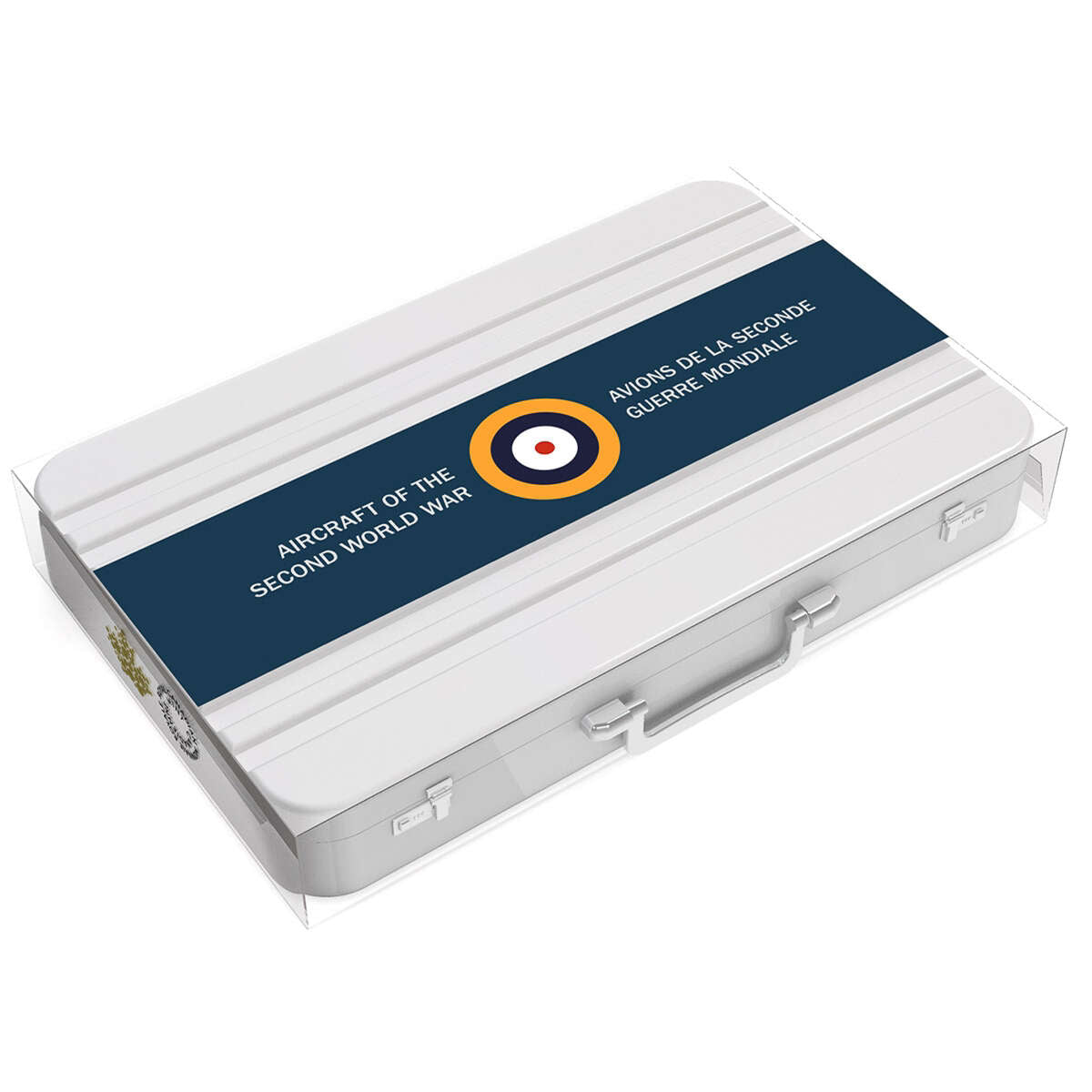Description
Consolidated Canso
The flying boats of the Second World War were prized for their long-range flight capabilities. When an amphibious version of the Consolidated PBY Catalina seaplane was introduced in 1939, the more versatilePBY-5A caught the eye of the Royal Canadian Air Force. Re-designated as the Consolidated Canso and manufactured in Canada, the legendary anti-submarine patrol bomber is brought to life once more on this coin, where selective colour showcases the colours and markings of RCAF No. 162 Squadron.
The flying boats of the Second World War were prized for their long-range flight capabilities. When an amphibious version of the Consolidated PBY Catalina seaplane was introduced in 1939, the more versatilePBY-5A caught the eye of the Royal Canadian Air Force. Re-designated as the Consolidated Canso and manufactured in Canada, the legendary anti-submarine patrol bomber is brought to life once more on this coin, where selective colour showcases the colours and markings of RCAF No. 162 Squadron.
The Design:
Designed by Canadian artist David A. Oram, the coin features an engraved depiction of the amphibious Consolidated Canso in action in the Atlantic theatre of war. Selective colour re-creates the camouflage colours and markings of RCAF No. 162 Squadron—specifically the white-grey fuselage, as well as the blue and green camouflage pattern along the upper wing and tail surfaces. The reporting marks “T” and “9816” are associated with a Canadian Canso piloted by Flt. Lt. R.E. McBride who, on June 3, 1944, dropped four depth charges to destroy U-477 (engraved in the background) in the waters of the North Sea, off the coast of Norway. The obverse features the effigy of King George VI by T.H. Paget.
Avro Anson
Nicknamed "Faithful Annie", the Avro Anson was reputed for its stability and rugged reliability. Its wartime production fueled Canada's aircraft manufacturing industry, but its most significant role was arguably as the twin-engine aircraft of the British Commonwealth Air Training Plan (BCATP).
The Design:
Designed by Canadian artist David A. Oram, your coin features an engraved depiction of an Avro Anson in one of its many roles during the war. The legendary aircraft is brought to life once more by an outstanding amount of detailed engraving, all skillfully enhanced by the use of multiple finishes that convey the intensity of the situation, as it flies over a convoy of ships at sea. The obverse features the effigy of King George VI by T. H. Paget.
Designed by Canadian artist David A. Oram, your coin features an engraved depiction of an Avro Anson in one of its many roles during the war. The legendary aircraft is brought to life once more by an outstanding amount of detailed engraving, all skillfully enhanced by the use of multiple finishes that convey the intensity of the situation, as it flies over a convoy of ships at sea. The obverse features the effigy of King George VI by T. H. Paget.
Hawker Hurricane
At the hands of Royal Air Force (RAF) and Royal Canadian Air Force (RCAF) pilots, the dependable and rugged Hawker Hurricane was flown in all theatres of war yet remains most famously associated with the Battle of Britain (1940). On this special coin, this aviation icon takes flight once more over the Thames Estuary, with selective colour highlighting the aircraft piloted by the commanding officer of the RCAF's No. 1 Squadron, Ernest Archibald McNab.
The Design:
Designed by Canadian artist David A. Oram, the coin features an engraved depiction of two Hawker Hurricanes patrolling the skies over Great Britain during the Battle of Britain, circa 1940. The design features an outstanding amount of detail, all painstakingly engraved and enhanced with the use of multiple finishes. In the background, a part in the cloud cover reveals the Thames Estuary below, where the fuel tanks and ships of a vital British shipping port are to be defended from airborne attacks by the German Luftwaffe. The selectively coloured Hurricane in the foreground bears the reporting marks of the Royal Canadian Air Force (RCAF) No. 1 Squadron, along with the identifier YO-A and the serial number P3069 that are associated with the aircraft flown by Squadron Leader Ernest Archibald McNab. This Hurricane's combat experience is evident in the markings and faded paint on its fuselage and wings, but does little to diminish the aircraft's overall colourful appearance—from its grey-green camouflage to the multi-coloured roundels on the wings and fuselage, along with the red, white and blue tail flash. The obverse features the effigy of King George VI by T. H. Paget.
Designed by Canadian artist David A. Oram, the coin features an engraved depiction of two Hawker Hurricanes patrolling the skies over Great Britain during the Battle of Britain, circa 1940. The design features an outstanding amount of detail, all painstakingly engraved and enhanced with the use of multiple finishes. In the background, a part in the cloud cover reveals the Thames Estuary below, where the fuel tanks and ships of a vital British shipping port are to be defended from airborne attacks by the German Luftwaffe. The selectively coloured Hurricane in the foreground bears the reporting marks of the Royal Canadian Air Force (RCAF) No. 1 Squadron, along with the identifier YO-A and the serial number P3069 that are associated with the aircraft flown by Squadron Leader Ernest Archibald McNab. This Hurricane's combat experience is evident in the markings and faded paint on its fuselage and wings, but does little to diminish the aircraft's overall colourful appearance—from its grey-green camouflage to the multi-coloured roundels on the wings and fuselage, along with the red, white and blue tail flash. The obverse features the effigy of King George VI by T. H. Paget.






